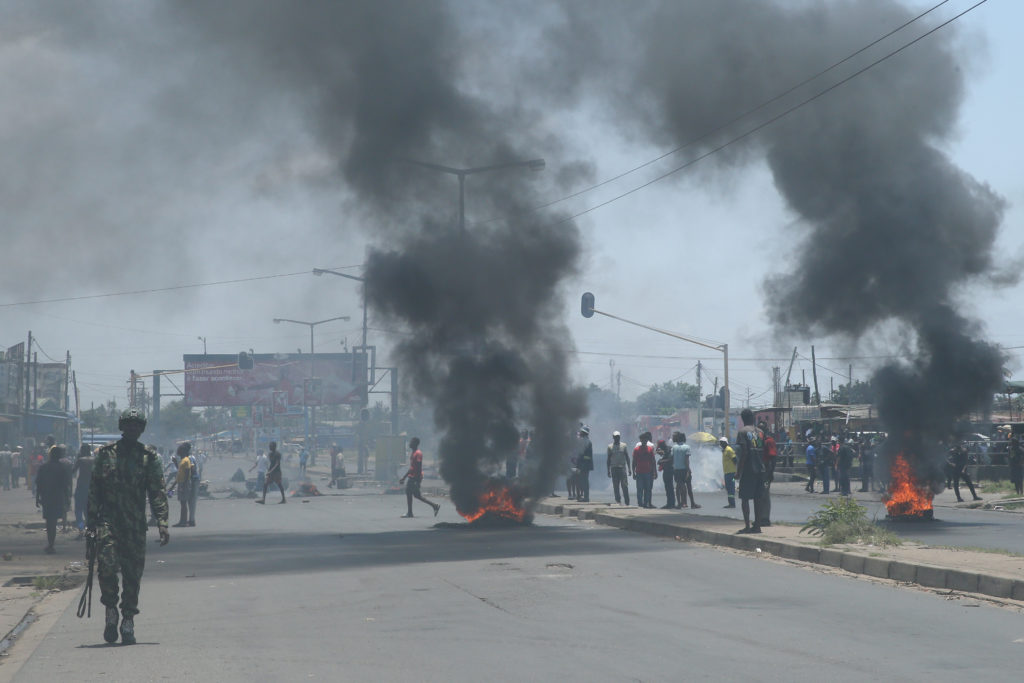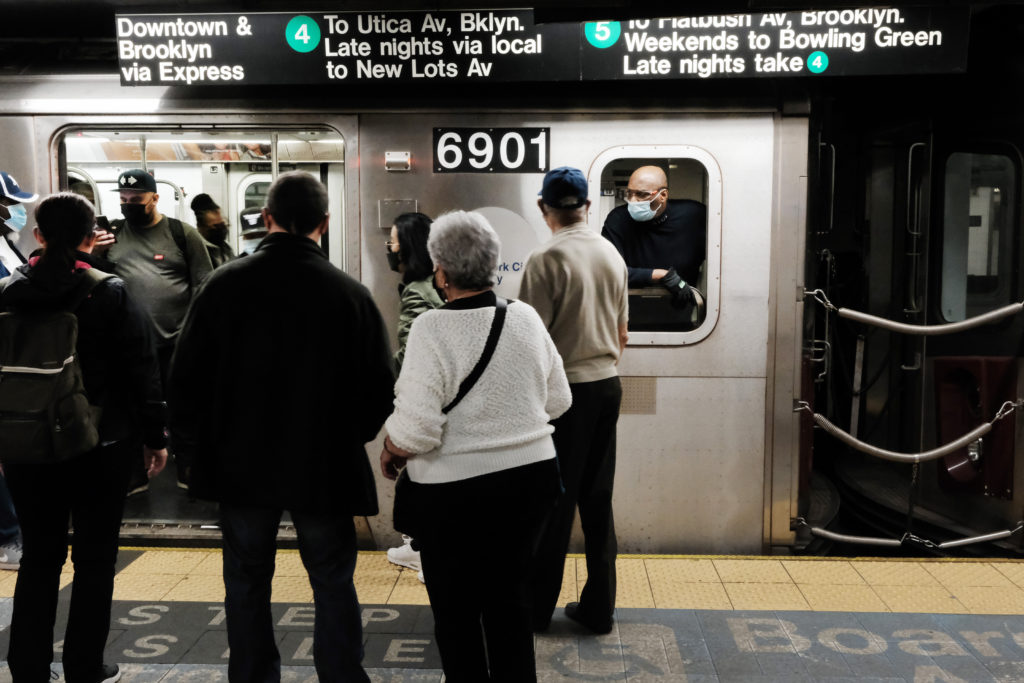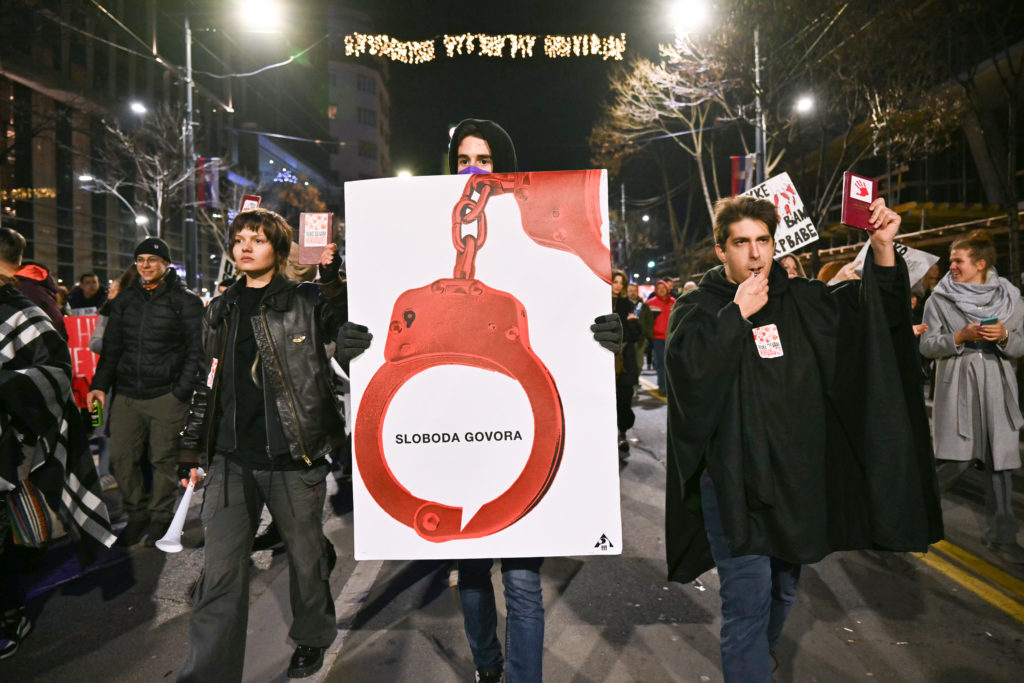European and US stock markets dropped Thursday as traders tracked developments surrounding the Omicron coronavirus variant and fallout from the Chinese property crisis.
The Dow ended flat but the Nasdaq and S&P 500 both fell despite data showing new filings for US unemployment aid dropped sharply last week, bringing them to levels not seen since 1969 for the second time this year.
The indices’ declines ended a three-day rally that took Wall Street back near record territory, as traders await the latest US consumer price data set for release Friday, which is expected to show inflation climbing higher last month.
“I don’t see where the selling pressure really comes from,” said Maris Ogg of Tower Bridge Advisors. “I’m not sure it’s very obvious where the buying pressure would come from, either. So we probably just waffle around for the rest of the year.”
London’s benchmark FTSE 100 index shed 0.2 percent after the UK government tightened virus restrictions in England as Omicron variant cases surge, including guidance to work from home and mandatory Covid passports.
The British pound also took a knock as that country and others are fighting against surging inflation, further threatening economic recovery.
“It is clear that the momentum we saw at the start of the week has well and truly faded,” said analyst Fawad Razaqzada at ThinkMarkets.
“Investors are wary of the major central bank meetings coming up next week and are unwilling to have too much exposure ahead of those.”
Brazil’s central bank on Wednesday hiked its benchmark interest rate by a whopping 150 basis points for the second straight time, even as Latin America’s biggest economy is stuck in recession.
On Thursday, China reported that its consumer price inflation reached the highest level in more than a year in November.
– Contagion fears –
Investors were also concerned about the debt crisis in China’s property sector.
Two major Chinese property firms have defaulted on $1.6 billion worth of bonds to overseas creditors, Fitch Ratings agency said Thursday, as contagion spreads within the country’s debt-ridden real estate sector.
Fitch confirmed Evergrande defaulted for the first time on more than $1.2 billion worth of bond debt, as it downgraded the firm’s status to a restricted default rating.
Fitch also confirmed Kaisa, a smaller property company but one of China’s most indebted, had defaulted on $400 million of bonds.
Elsewhere Thursday, Italy’s antitrust authority said it had fined Amazon 1.1 billion euros ($1.3 billion) for allegedly abusing its dominant position in e-commerce logistics.
Bitcoin fell back under $50,000.
“There are several reasons why cryptos have been coming under pressure of late,” Razaqzada said, pointing to concerns about the economic impact of Omicron on risk assets and central banks’ reduction of stimulus, which means there will be progressively less money flooding the financial markets.
– Key figures around 2150 GMT –
New York – Dow: FLAT at 35,754.69 (close)
New York – S&P 500: DOWN 0.7 percent at 4,667.45 (close)
New York – Nasdaq: DOWN 1.7 percent at 15,517.37 (close)
EURO STOXX 50: DOWN 0.6 percent at 4,208.30 (close)
London – FTSE 100: DOWN 0.2 percent at 7,321.26 (close)
Frankfurt – DAX: DOWN 0.3 percent at 15,639.26 (close)
Paris – CAC 40: DOWN less than 0.1 percent at 7,008.23 (close)
Tokyo – Nikkei 225: DOWN 0.5 percent at 28,725.47 (close)
Hong Kong – Hang Seng Index: UP 1.1 percent at 24,254.86 (close)
Shanghai – Composite: UP 1.0 percent at 3,673.04 (close)
Brent North Sea crude: DOWN 2.3 percent at $74.02 per barrel
West Texas Intermediate: DOWN 2.5 percent at $70.58 per barrel
Euro/dollar: UP at $1.1293 from $1.1281
Pound/dollar: DOWN at $1.3216 from $1.3248
Euro/pound: UP at 85.38 pence from 85.15 pence
Dollar/yen: DOWN at 113.44 yen from 113.47 yen
burs-rl/tgb/cs/md










